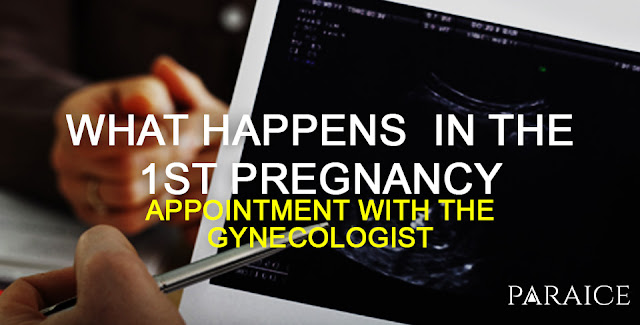Pregnancy is not a disease. Nevertheless, a medical check-up is very useful to make sure that you and your unborn baby are doing well until the birth. The first prenatal consultation usually takes place between the 8th and 12th week of amenorrhea, or the 2nd half of the 1st trimester. It allows, above all, to clinically confirm the existence of the pregnancy and to obtain an official declaration.
Why you should not delay to consult
The first 3 months are crucial for the development of the embryo. All of its organs are forming, yet it is particularly fragile and exposed to the substances you ingest, hence the significant risk of malformations.
Your gynaecologist or midwife can advise you on what to avoid consuming (alcohol, tobacco, drugs, self-medication, certain food preparations...), or doing (x-rays, violent sports...) during this period.
You also receive advice on how to adopt good habits during your pregnancy: how to eat well, how to keep in shape, what about sexual relations, etc.
A complete assessment for the future
This first contact also serves to get to know the doctor and to detect any risk factors. This is why the first visit usually lasts longer than the following ones, as a complete check-up of your health status is made.
- The doctor or midwife will ask you many questions (the anamnesis) to establish your pregnancy record:
- Your overall state of health
- Your family, medical and surgical history
- Previous pregnancy history, if you are not expecting your first child.
- Your life habits (diet, possible addictions...) and your work (if it is physical, stressful, tiring...)
- Pregnancy symptoms you are experiencing
This is accompanied by a medical examination and tests, which will be repeated during the following consultations:
- Vitals: weight, height, pulse, blood pressure
- Urinalysis
Blood test: it allows us to detect possible problems, such as rhesus incompatibility or anemia, and to detect diseases and infections harmful to the baby (toxoplasmosis, rubella, cytomegalovirus, or certain sexually transmitted infections (STIs) and hepatitis).
Finally, a gynecological examination completes the check-up. It consists of a vaginal touch to check the state of your cervix, a general inspection of your genitals and breasts, palpation of your abdomen, and a smear if necessary.
The first ultrasound
Usually offered after the 1st consultation, around the 12th week of amenorrhea, the ultrasound is a painless examination for you and the fetus. This first ultrasound makes it possible to exclude any ectopic pregnancy, to count the number of implanted embryos and to date the pregnancy. This is in order to evaluate when your delivery should take place and to establish a benchmark to assess the growth of the future baby.
These examinations are systematic for all pregnant women. The medical team may offer you additional tests, if they deem them useful. For example, screening for trisomy 21 or amniocentesis.
See you in a few weeks for the 2nd prenatal consultation! Article written under the direction of Dr. Marie Mawet



